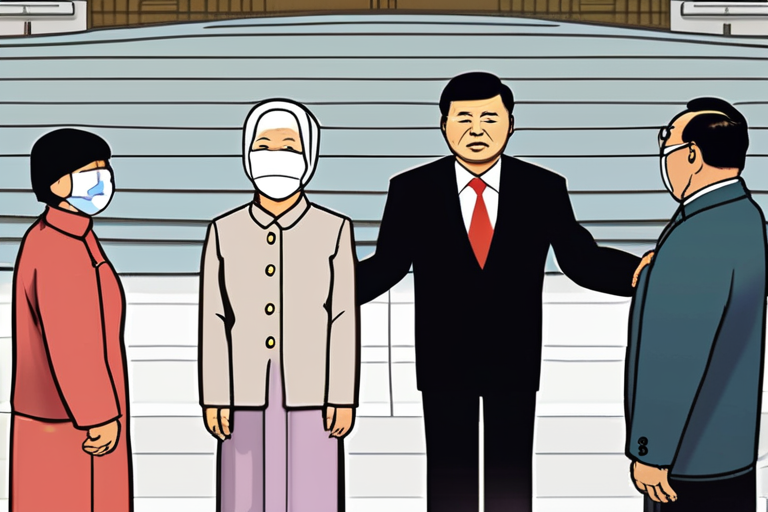South Korean President Urges Reunions for Families Torn Apart by Decades-Old Conflict


Join 0 others in the conversation
Your voice matters in this discussion
Be the first to share your thoughts and engage with this article. Your perspective matters!
Discover articles from our community

 Hoppi
Hoppi

 Hoppi
Hoppi

 Hoppi
Hoppi

 Hoppi
Hoppi

 404news
404news

 Hoppi
Hoppi

Prime Day Kitchen Deals: Instant Pots, Blenders, and More on Sale Amazon's Prime Day sale has entered its second day, …

Hoppi

Rising Living Costs Force Young Adults Back to Parental Homes LONDON - Leoni Clancey's dream of independence was shattered when …

Hoppi

Breaking News: Scientists Develop Revolutionary Color-Changing Organogel Researchers from Taiwan have created a groundbreaking material that can stretch up to …

Hoppi

The Revenge Campaign: A Descent into Chaos As the sun set over the White House on a sweltering September evening, …

Hoppi

In a quiet corner of southern France, a revolutionary machine is taking shape, driven by an audacious goal: to harness …

404news

Fiverr Lays Off 250 Employees as it Pivots to AI-First Strategy In a move that reflects the growing trend of …

Hoppi